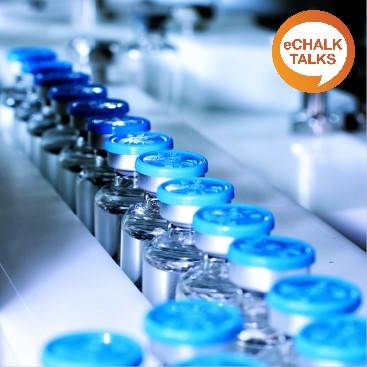Catalog

Over 60% of Active Pharmaceutical Ingredients on the market are considered bitter, and the demand for innovative, patient friendly dosage forms that increase patient compliance is rising. Galenic forms such as orally disintegrating tablets, orodispersible films, and oral liquids require a more careful taste design, due
to the inherent contact of all the formulation components with the tongue and taste receptors prior to ingestion. Flavor tonalities, taste modulators such as maskers, blockers, sensates, and sweetness enhancers are examples of technologies available to create the ultimate flavor perception. A combination
of several technologies is usually the best solution for a given formulation, and varies depending on the form, use level and type of ingredients, preparation process, regional regulatory compliance, and patient group (age, country of origin, potential taste distortions). Often, the regulatory landscape is the most
concerning aspect to drug product formulators, as there is an increased scrutiny from regulatory bodies on the role of flavoring agents in drugs, and the documentation requirements for their approval.
Innovations such as receptor-based discovery of new flavor molecules that bind and block specific receptors on the tongue are state-of-the-art technologies that enable the creation of targeted taste modulators for specific challenges common to the pharmaceutical industry, such as bitterness. Understanding how APls with off-tastes interact with taste receptors and how we can modulate these taste receptor activities, with targeted novel flavors and flavor modifiers, will allow the development of novel formulations truly unlocking the full potential of an innovative drug product.
About this item

Over 60% of Active Pharmaceutical Ingredients on the market are considered bitter, and the demand for innovative, patient friendly dosage forms that increase patient compliance is rising. Galenic forms such as orally disintegrating tablets, orodispersible films, and oral liquids require a more careful taste design, due
to the inherent contact of all the formulation components with the tongue and taste receptors prior to ingestion. Flavor tonalities, taste modulators such as maskers, blockers, sensates, and sweetness enhancers are examples of technologies available to create the ultimate flavor perception. A combination
of several technologies is usually the best solution for a given formulation, and varies depending on the form, use level and type of ingredients, preparation process, regional regulatory compliance, and patient group (age, country of origin, potential taste distortions). Often, the regulatory landscape is the most
concerning aspect to drug product formulators, as there is an increased scrutiny from regulatory bodies on the role of flavoring agents in drugs, and the documentation requirements for their approval.
Innovations such as receptor-based discovery of new flavor molecules that bind and block specific receptors on the tongue are state-of-the-art technologies that enable the creation of targeted taste modulators for specific challenges common to the pharmaceutical industry, such as bitterness. Understanding how APls with off-tastes interact with taste receptors and how we can modulate these taste receptor activities, with targeted novel flavors and flavor modifiers, will allow the development of novel formulations truly unlocking the full potential of an innovative drug product.
Speaker Information
Guy Servant, Ph.D.
Guy Servant was trained in receptor pharmacology in Canada and then conducted post-doctoral work at UCSF in molecular pharmacology and signalling. He joined dsm-firmenich in 2000 to functionalize taste receptors and established the high throughput screening operations for taste receptor assays. Since then, he has taken on increasing responsibilities, including leading the biology team and managing overall R&D activities at our San Diego research and development site.
Lyzandra Passarella-Dutour, MSc.
Global Taste Technical Director, dsm-firmenich, Switzerland
- More than 20 years of experience within the Flavor Industry
- MSc in Flavouring Expertise Formulation & Applications from ISIPCA Versailles –France
- Leading various teams from applications, flavor creations and analytical on Sweet Goods, Beverages and healthier products
- Experience in building innovative taste and flavors solutions in different food segments
- Creating and optimizing flavor portfolio’s following consumer trends and customer needs